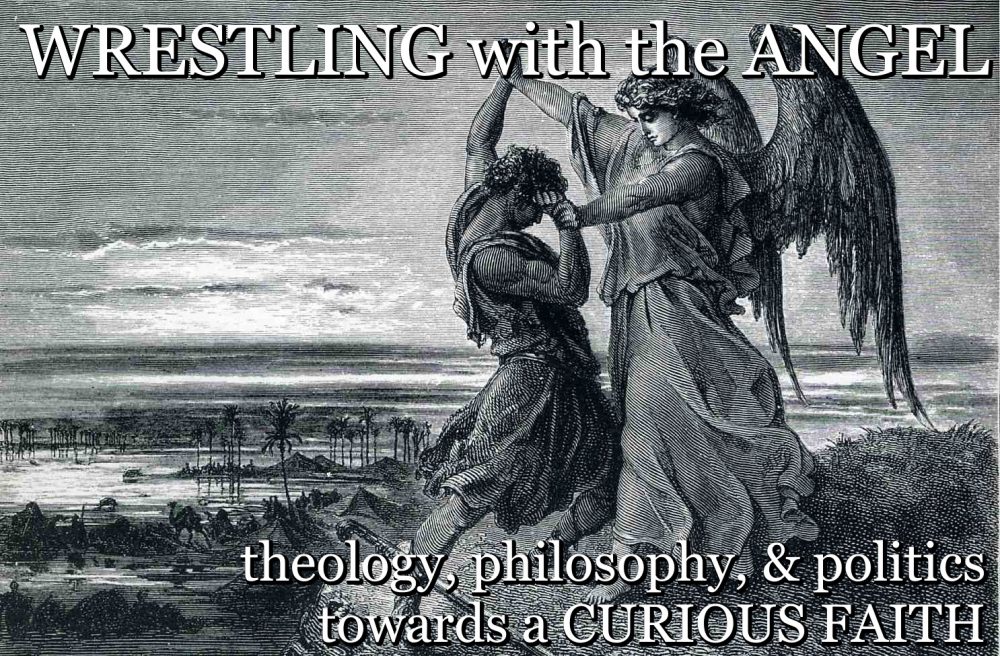
To mask or not to mask. In the summer of 2020, that is the question.
In the US, the question is strangely rather political, with many Americans perceiving government requirements to wear a mask as a violation of their freedom: they should be free to go outside without a mask if they so choose. Meanwhile, while no one actually enjoys wearing a mask, the evidence showing their effectiveness in reducing the spread of the coronavirus has convinced many other Americans to wear a mask either for their own safety—or out of a sense of duty to others.
Benjamin Franklin once said that “Those who would give up essential Liberty, to purchase a little temporary Safety, deserve neither Liberty nor Safety.” The tug-of-war between freedom and security has defined much of American politics, and it seems to define the contours of the mask debate as well.
But for a Christian, neither freedom nor security is the highest value. We worship neither the self nor the state, and so our answer to whether to mask or not must be based on our most deeply held value: knowing, worshiping, and serving God through, in, and as Jesus Christ.
So: would Jesus wear a mask?
To answer this question, one chapter from Paul’s letters will be very instructive. Paul faced many controversies of his own as he sought to spread faith in Christ throughout the eastern Mediterranean. In Corinth, a city in southern Greece, a fight broke out over something that seems trivial today: can Christians eat meat that’s been used in pagan religious practices?
This is the topic Paul takes up 1 Corinthians 8, a short chapter that neatly summarizes the Christian attitude towards freedom, responsibility, and society in general. Let’s take a brief look at the text and then see what it can teach us about masks in 2020:
Now concerning food sacrificed to idols: we know that “all of us possess knowledge.” Knowledge puffs up, but love builds up. Anyone who claims to know something does not yet have the necessary knowledge; but anyone who loves God is known by him.
Immediately Paul sets the stage: there is a tension between knowledge and love. Of course, if you ask anyone today whether they wear a mask or not, whichever choice they prefer, they will be sure that their choice is right, and they often denigrate those on the other side. Paul knew all about this “knowledge [that] puffs up” but he called his friends to a different way of life. He continues:
Hence, as to the eating of food offered to idols, we know that “no idol in the world really exists,” and that “there is no God but one.” Indeed, even though there may be so-called gods in heaven or on earth—as in fact there are many gods and many lords— yet for us there is one God, the Father, from whom are all things and for whom we exist, and one Lord, Jesus Christ, through whom are all things and through whom we exist.
Paul is skeptical of arrogant claims to knowledge, yet Paul does know some things. He knows the gods represented by idols are not real—so, if meat is offered as a sacrifice to such a god, nothing in fact has actually happened. For Paul, then, there is no concern about eating this meat. It is food, like any other food. The religious ceremony it’s been involved with was a deception, but so long as the one who eats it does not participate directly in the ceremony, it does no damage to their relationship with God. Now, Paul concludes the chapter:
It is not everyone, however, who has this knowledge. Since some have become so accustomed to idols until now, they still think of the food they eat as food offered to an idol; and their conscience, being weak, is defiled. “Food will not bring us close to God.” We are no worse off if we do not eat, and no better off if we do. But take care that this liberty of yours does not somehow become a stumbling block to the weak. For if others see you, who possess knowledge, eating in the temple of an idol, might they not, since their conscience is weak, be encouraged to the point of eating food sacrificed to idols? So by your knowledge those weak believers for whom Christ died are destroyed. But when you thus sin against members of your family, and wound their conscience when it is weak, you sin against Christ. Therefore, if food is a cause of their falling, I will never eat meat, so that I may not cause one of them to fall.
Religious knowledge is not the final word, and Paul now returns to his original theme. Even if he know that idols are in fact just wood or stone, that they are not real gods, some of his fellow Christians may not be so sure. Perhaps they only recently converted, or are more superstitious than he is. And if they see him eat this meat sacrificed to idols, perhaps they will be confused and scandalized. What if this tempts them to eat this meat, which they believe really does link them to the god of the idol? This could cause them to either abandon the Christian faith, or perhaps remain in the church while feeling guilty, compromised, and spiritually divided.
For Paul, this possibility finishes the argument: protecting others’ faith, conscience, and peace of mind is more important than having a nice meal. So, Paul will never eat meat sacrificed to idols—even though he himself sees nothing wrong with doing so. In short, Paul’s love for his fellow believer outweighs his desire for freedom.
Paul sums this up nicely himself: “take care that this liberty of yours does not somehow become a stumbling block to the weak.” Liberty in life is itself good, but it is not the only or highest good. We must look out for others, especially the weak. Indeed, Paul tells us, we must love others more than our own liberty.
Now, surely, if Paul is willing to give up meat—at a time when famines were not rare and quality food often hard to come by—just to safeguard the gentle consciences of others, then he has certainly given us food for thought about wearing masks today, hasn’t he? Because, if wearing a mask—an action that does me no harm, besides causing some mild discomfort—might actually save someone else’s life, then Paul answers the question of whether to wear a mask or not with unambiguously. My freedom to avoid mild discomfort is not as important as another’s life. Period.

“Freedom” is too often just another way of saying “I do what I want!” But Christian faith is built on just the opposite: we are called to abandon selfishness in service to others. In this way, we draw closer to each other, and to God. We see this throughout the Gospels: Jesus heals and feeds without charging a dime; he teaches for free too, and when the going gets tough, he takes on the violence of the state himself, refusing to run away or to put anyone else in harm’s way.
Jesus never insists on freedom—but he always insists on love. Not the superficial, saccharine love of romance novels, but the spiritual love of sacrifice for the good of others. This divine love asks not what I can get from someone, but rather what they need from me. And this is precisely what Paul teaches us in 1 Corinthians 8 (and he continues the theme in chapter 9).
Again: “take care that this liberty of yours does not somehow become a stumbling block to the weak.” If you don’t want to wear a mask because it’s hot outside, you don’t like the way it looks, or it irritates your skin, just remember that this tiny sacrifice might keep someone else out of the hospital—or the grave. When such a tiny sacrifice of liberty yields such a great harvest of love for another, the Christian’s duty is, I think, perfectly clear.
TL;DR: Jesus wants you to wear a mask!




